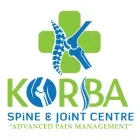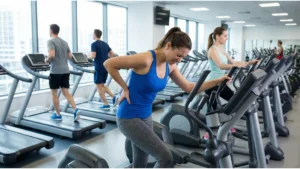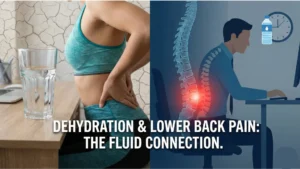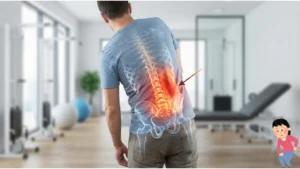Ever felt a dull ache or sharp low back pain near your kidneys and wondered—“Is this my kidneys or just a muscle problem?” You’re not alone! Many people experience discomfort in this area and find it difficult to determine the actual cause. Low back pain near kidneys can sometimes be a harmless muscle strain, while other times, it may signal an underlying kidney issue needing immediate attention.
The good news? By the end of this article, you’ll clearly understand how to differentiate between low back pain near kidneys caused by muscular problems and that arising from kidney-related conditions.
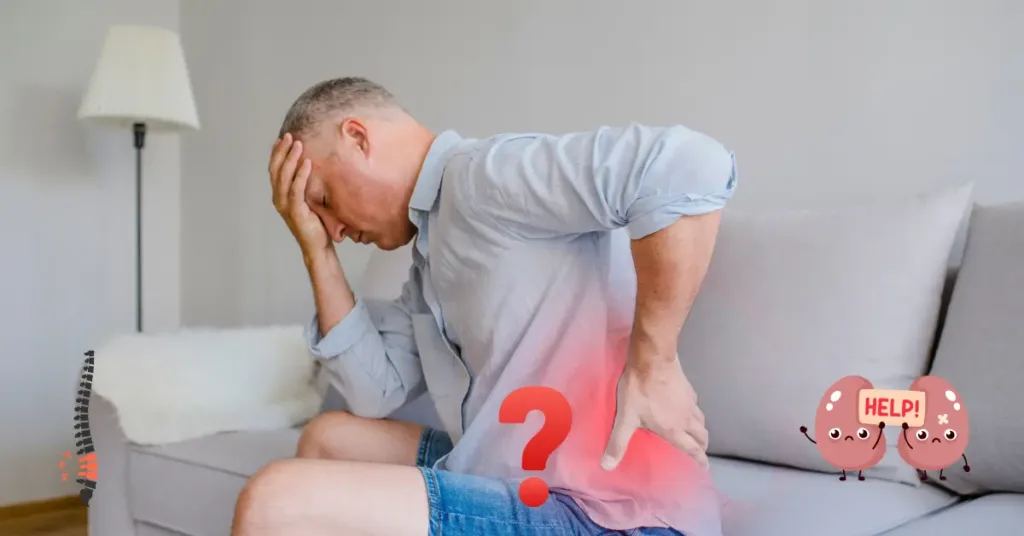
Understanding Your Lower Back Anatomy
Location of Kidneys
The kidneys are two bean-shaped organs positioned deep within the upper part of your abdomen, one on each side of the spine, sitting just below the ribcage. Despite their protected position, infections, stones, or cysts in the kidneys can cause low back pain near kidneys, making it tricky to distinguish from muscle pain.
Key Lower Back Muscles Involved in Pain
Your lower back is a structurally intricate area composed of muscles, ligaments, and bones working together to provide support and mobility.. Important muscles like the erector spinae, quadratus lumborum, and multifidus provide support and mobility. When these muscles are strained or overused, they can lead to low back pain near kidneys, often mimicking kidney discomfort.
Common Causes of Pain Near Kidneys
Kidney-Related Causes
Kidney Infection (Pyelonephritis)
A kidney infection occurs when bacteria reach the kidneys, often traveling up from the bladder. This condition can cause deep, dull low back pain near kidneys, usually accompanied by fever, chills, and painful urination.
Kidney Stones
Kidney stones are known for causing severe, stabbing low back pain near kidneys that comes in waves. The pain may radiate to the groin and is often associated with nausea, vomiting, and blood in the urine.
Polycystic Kidney Disease
This genetic disorder causes multiple cysts to develop in the kidneys, leading to swelling and persistent low back pain near kidneys over time. It is often accompanied by high blood pressure and urinary problems.
Musculoskeletal Causes
Muscle Strain or Sprain
Muscle overuse, improper lifting techniques, or poor posture can result in strained muscles, causing low back pain near kidneys. This pain is usually more localized and can worsen with specific movements.
Herniated Disc
A bulging or slipped disc in the lower spine can press on nerves, leading to sharp, shooting low back pain near kidneys, often radiating down the leg.
Sciatica
Compression of the sciatic nerve can cause radiating low back pain near kidneys that extends through the buttocks and legs, mimicking deeper organ-related pain.
How to Differentiate Between Kidney Pain and Muscle Pain
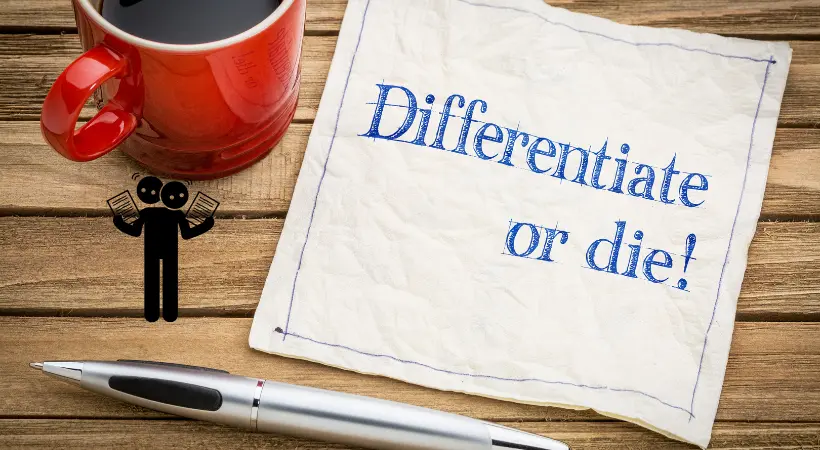
Pain Location and Sensation
Low back pain near kidneys originating from the kidneys typically feels deeper, dull, and is located just below the rib cage on either side. In contrast, muscle pain is more superficial and can usually be pinpointed when pressing on the affected area.
Associated Symptoms to Watch For
Kidney-related low back pain near kidneys often comes with symptoms like:
- Fever
- Nausea and vomiting
- Painful or frequent urination
- Blood in urine
Muscle pain, however, rarely has these systemic symptoms and is generally isolated to the musculoskeletal system.
Response to Movement or Rest
Muscle-related low back pain near kidneys worsens with certain activities like bending, twisting, or lifting and improves with rest or stretching. Kidney pain, on the other hand, remains constant regardless of posture or movement.
👨⚕️ Dr. Arora’s Clinical Note:
Patients ask me if “kidney pain” should hurt when they press the spot. Here’s a useful clinical clue: true kidney-origin flank pain is often deep and not sharply reproducible by poking the surface muscles, whereas quadratus lumborum (QL) and deep erector-spinae trigger points can feel “organ-deep” and convincingly mimic kidney discomfort.A simple pattern test I use: brace + move vs. stay still. If your pain clearly spikes with bending, side-bending, getting out of a chair, coughing, or lifting, and you can “catch it” by pressing a tender band of muscle beside the spine (often between the 12th rib and the top of the pelvis), it strongly supports a musculoskeletal driver. If instead the pain feels internally deep, is paired with fever/chills or urinary symptoms, and doesn’t change much with movement, treat it as kidney-related until proven otherwise.
One counter-intuitive rehab tip: don’t start with aggressive stretching. For QL-driven “kidney-area” back pain, the fastest win is often unloading + breathing control (side-lying with knees bent, slow nasal breaths, gentle abdominal brace) for 2–3 minutes—then progress to stability work, rather than pulling harder on tight tissues.
Warning Signs It Might Be a Kidney Problem
Fever, Chills, and Infection Signs
If you’re experiencing low back pain near kidneys along with fever, chills, and general malaise, it could indicate a kidney infection, which requires prompt medical treatment.
Urinary Symptoms (Blood, Burning, Frequency)
Urinary changes such as blood in urine, cloudy appearance, burning sensation while urinating, or increased frequency, are clear indicators of kidney involvement.
Nausea and Vomiting
These symptoms often accompany low back pain near kidneys in cases of kidney stones or infections, as the body’s response to internal irritation or blockage.
Signs That Point to Muscle or Spine Issues
Pain that Increases with Movement
If your low back pain near kidneys intensifies when you bend, twist, or lift objects, it’s more likely a muscle strain or spinal issue rather than a kidney problem.
Muscle Tightness or Spasms
A sensation of muscle tightness, knots, or spasms in the lower back often indicates musculoskeletal-related pain.
No Urinary or Systemic Symptoms
The absence of fever, nausea, vomiting, or urinary symptoms typically points towards a muscle-related cause for your low back pain near kidneys.
Diagnosis: When to See a Doctor?
Physical Examination
A healthcare professional will assess your low back pain near kidneys through a physical exam, checking for tenderness, range of motion, and palpating areas to identify the pain source.
Lab Tests and Imaging for Kidney Issues
Urine tests to detect infections, blood tests for kidney function, and imaging like ultrasound or CT scan can help diagnose kidney infections, stones, or other abnormalities causing low back pain near kidneys.
MRI/CT for Musculoskeletal Causes
Advanced imaging such as MRI or CT scans can reveal disc herniations, nerve compressions, or muscle injuries that may be responsible for your low back pain near kidneys.
At-Home Tests and Checks You Can Try
Gentle Movement Test
Try bending, twisting, or stretching. If your low back pain near kidneys increases with specific movements, it’s more likely musculoskeletal.
Hydration Test for Kidney Pain
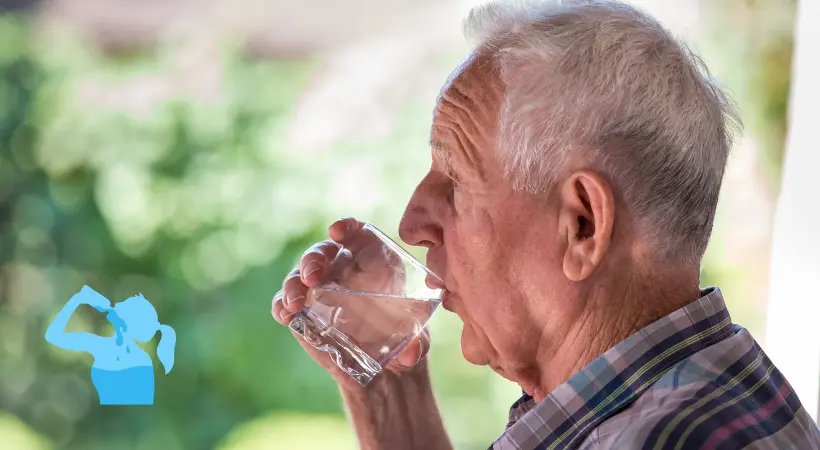
Lack of adequate hydration can worsen kidney-associated low back pain near the kidney area. Increasing your fluid intake may help ease mild discomfort, particularly in cases of small kidney stones.
Heat vs Cold Therapy Response
Apply a heating pad to your lower back. Muscle-related low back pain near kidneys often responds well to heat, while kidney pain will remain unaffected.
Treatment Options for Kidney-Related Pain
Antibiotics for Infections
Kidney infections require a course of antibiotics. Ignoring this can lead to serious complications like kidney damage or sepsis.
Pain Management for Kidney Stones
Hydration, pain relievers, and medications to relax the ureter muscles are common treatments to aid in stone passage and alleviate low back pain near kidneys.
Medical Procedures if Needed
Large kidney stones may need surgical intervention or procedures like extracorporeal shock wave lithotripsy (ESWL) to break them down.
Treatment Options for Muscle-Related Pain
Rest and Physiotherapy
Initial rest followed by structured physiotherapy is key to recovering from muscle strains that cause low back pain near kidneys.
Stretching and Strengthening Exercises
Regular exercises focusing on core stability, back flexibility, and posture correction can prevent recurrence of musculoskeletal low back pain near kidneys.
Medications for Muscle Pain Relief
Over-the-counter NSAIDs, muscle relaxants, and topical analgesics can provide symptomatic relief.
Preventing Future Lower Back Pain
Stay Hydrated and Maintain Kidney Health
Consuming 2-3 liters of water daily flushes out toxins and reduces the risk of kidney stones, thus preventing low back pain near kidneys.
Maintain a Strong Core and Flexible Back
Regular exercises like yoga, pilates, and core strengthening routines are essential to reduce strain on your lower back muscles.
Posture Correction Tips
Ensure ergonomic setups for your work environment, take frequent breaks, and avoid slouching to reduce mechanical stress that may lead to low back pain near kidneys.
Conclusion
Distinguishing between kidney pain and muscle-related low back pain near kidneys can be challenging. However, understanding associated symptoms, how the pain reacts to movement, and noting any urinary or systemic signs can guide you towards the correct cause. If you’re unsure about the cause of your pain, seeking advice from a medical professional ensures proper diagnosis and prompt care.
If you want a clinician-style overview of kidney-related flank pain patterns (infection vs stone) and the key red flags that separate them from mechanical back pain, see [Acute Pyelonephritis, 2024] and [Acute Renal Colic, 2024]
FAQs
1. Can kidney pain come and go like muscle pain?
Kidney pain is usually steady but can fluctuate in intensity, especially in the case of kidney stones. Muscle-related low back pain near kidneys tends to vary more frequently with body movements.
2. How long does kidney-related back pain last?
It depends on the condition. Kidney infections can resolve in a few days with antibiotics, while kidney stone pain persists until the stone is passed or removed.
3. Can dehydration cause low back pain near kidneys?
Yes, dehydration increases the risk of kidney stones, which can lead to low back pain near kidneys. Adequate fluid intake is crucial for kidney health.
4. Is it possible to have both kidney and muscle pain together?
Absolutely. A kidney problem may cause surrounding muscles to become tense, leading to combined low back pain near kidneys.
5. What type of doctor should I consult for low back pain near kidneys?
Start with a general physician. They may refer you to a nephrologist (kidney specialist) or an orthopedic/spine specialist based on initial assessments.
6. Does low back pain near kidneys always indicate a serious condition?
Not necessarily. It could be a simple muscle strain. However, if it’s accompanied by urinary symptoms or fever, it requires medical attention.
7. Can kidney stones cause pain only in the lower back?
Kidney stones frequently cause severe low back pain near the kidneys, with the discomfort sometimes spreading to the groin or abdominal area.
8. Are there specific exercises to avoid if I have low back pain near kidneys?
Avoid heavy lifting, deep backbends, or high-impact activities until you know the cause of your pain. Stick to gentle stretches and consult a professional.
9. Can diet affect low back pain near kidneys?
A diet high in sodium, sugar, and low in fluids can increase the risk of kidney stones, leading to low back pain near kidneys. A balanced, kidney-friendly diet is recommended.
10. When should I seek immediate medical attention for low back pain near kidneys?
Seek prompt medical help if you experience severe pain, high fever, nausea, vomiting, or notice blood in urine along with low back pain near kidneys.
